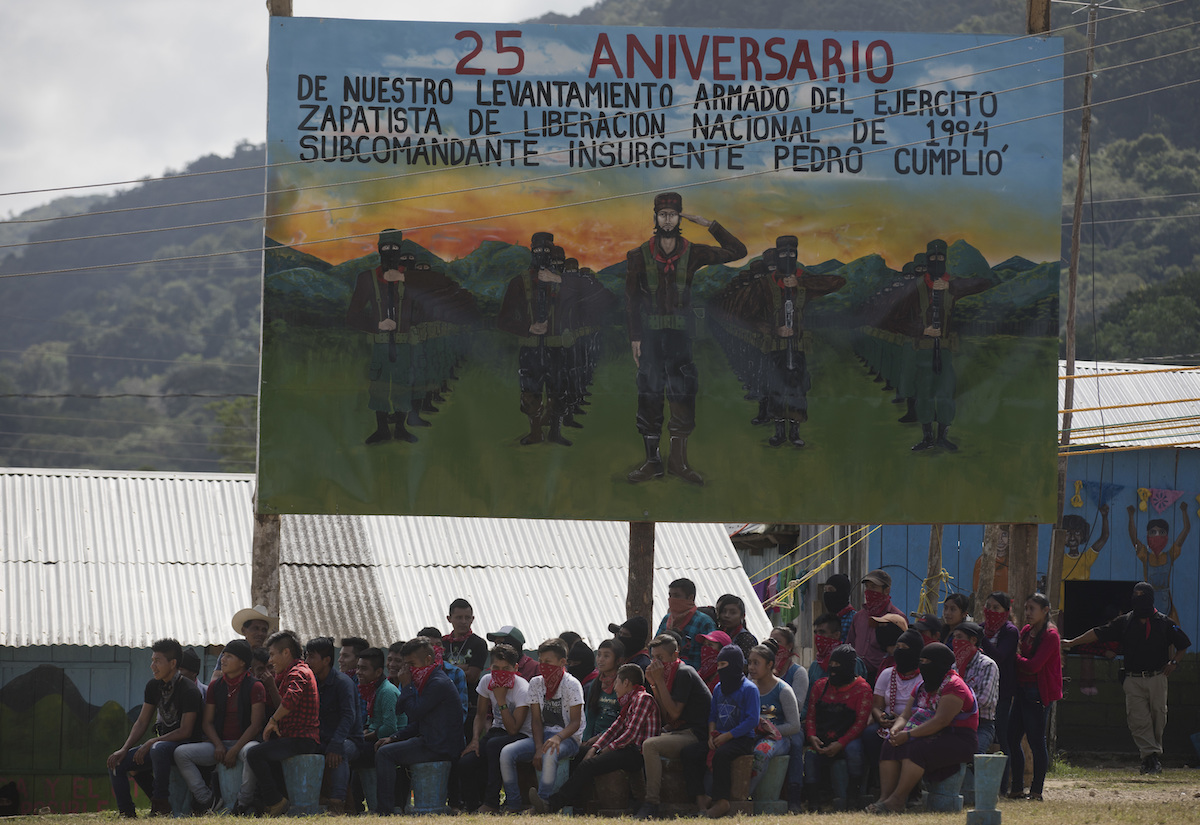

In this Jan. 1, 2019 file photo, members of the Zapatista National Liberation Army, EZLN, attend an event marking the 25th anniversary of the Zapatista uprising in La Realidad, Chiapas, Mexico. The Zapatista indigenous rebel group posted on their website Saturday, Aug. 17, 2019, that it is extending its control over so-called “autonomous” zones to 11 more areas in the southern state of Chiapas. (AP Photo/Eduardo Verdugo)
MEXICO CITY (AP) — Mexico’s Zapatista indigenous rebel group announced that it is extending its control over so-called “autonomous” zones to 11 more areas in the southern state of Chiapas.
The Zapatistas do not hide their dislike of President Andrés Manuel López Obrador, but when he was asked about the announcement Monday, López Obrador said the expansion was “welcome.”
“Go ahead, because that means working to benefit the villages and the people,” López Obrador said. “The only thing we don’t want is violence.”
A statement signed by Zapatista “subcommander” Moises and posted over the weekend called it an “exponential growth that allows us to break the blockade again.”
But some of the new autonomous zones are likely to be controversial.
Some are on land the Zapatistas seized after they staged a brief armed uprising in 1994 to demand greater rights for the indigenous. But at least one of new rebel “autonomous” towns, Nuevo Jerusalén, is located in the ecologically sensitive Lacandón jungle, a nature reserve.
The Zapatistas have suggested in the past that indigenous communities would establish their own reserves, where nature and farming could co-exist. But experts say that slash-and-burn agriculture, cattle and thin jungle soils make it almost impossible to have both settlement and conservation.
The Zapatistas generally forbid law enforcement agencies and government inspectors from entering their communities, and practice traditional forms of self-governance. They also have established their own educational systems.
At least since 2006, the Zapatistas’ leadership has publicly and frequently insulted López Obrador. The statement posted Saturday was no exception; the Zapatistas called him “the new overseer,” and claimed a dozen indigenous activists had been killed since he took office on Dec. 1.


